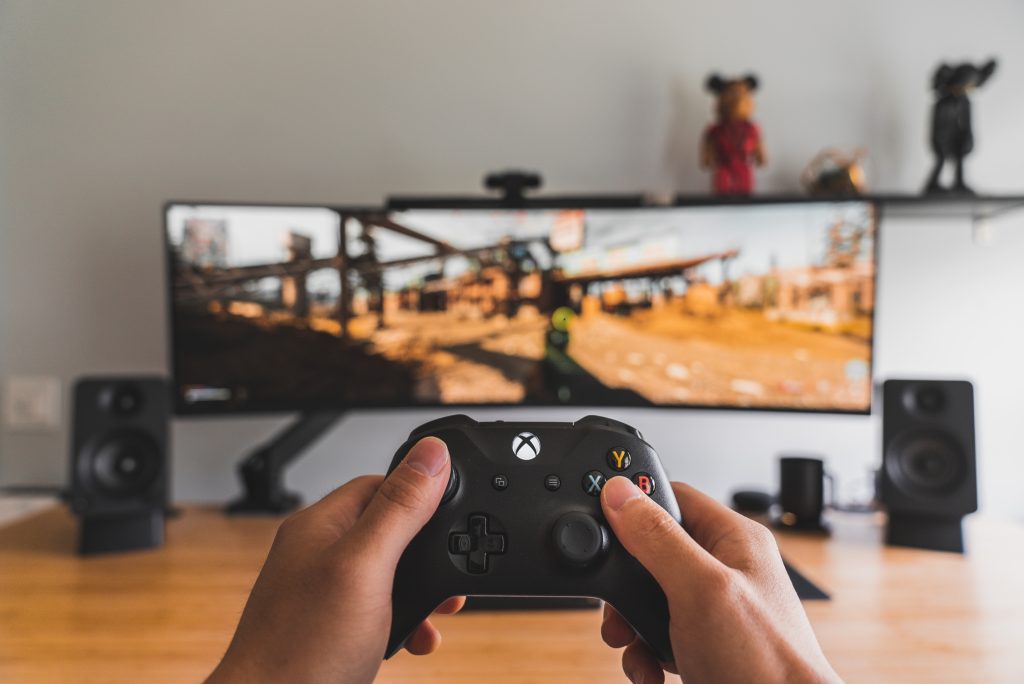To sign up for our daily email newsletter, CLICK HERE
Video gaming has come a long way since the early days of this popular form of entertainment. While there is some dispute as to when exactly the first game was created, it was at least 50 years ago, giving developers plenty of time to innovate.
Over the last five or so decades, we’ve seen the video games that we play grow larger, get better graphics, include natural human speech, become open-ended, and allow players to compete with each other.
Of course, this didn’t happen overnight. In the 1980s, we saw some major advancements when developers went from the black-and-white game of Pong, which had a single-tone beep as the only sound it could emit, to multi-colour 8-bit creations like Pac-Man and early Mario titles.
This eventually evolved into 3D games like Doom on gaming PCs and consoles, while companies like Nintendo also worked on shrinking down older games to make its portable Game Boy line.
Just as Pong would have looked prehistoric to a 1990s gamer enjoying the demon-shooting chaos of Doom, a player in 2023 would see both of those titles as antiques. Today’s gamers are spoilt by the quality and quantity of technology that is crammed into modern video games, and it’s thanks to these major innovations.

Online Play
Without a doubt, the biggest technological advancement in video gaming has been the internet. It has, in fact, had several major effects on the way titles are created, distributed, monetised, played, and shared but the one that players will notice the most is online play.
Before widespread internet adoption and online multiplayer mode availability, players had to physically be in the same room with their pals to enjoy a game together. Starting in the 1990s and accelerating through the 2000s, developers began to include online functionality to their titles.
Today, it is accepted as standard that a video game can be played online. In fact, there are some, like Fortnite, that are exclusively online and come without a single-player option.
The internet has also made it possible for traditional card games to be enjoyed remotely. In the same way that video game players had to crowd around a tiny TV, using split-screen mode, poker players of old had to sit around a table together to enjoy a few rounds of Texas Hold’em.
That’s no longer the case and many online card rooms have sprung up in recent years. However, most matched players with random strangers from elsewhere in the world, taking away some of the bonding that came from traditional face-to-face poker nights. But PokerStars has addressed this with its Home Game feature that lets players create a private poker club for just themselves and their friends. This allows players to set some of their own rules, control access, and decide on rules and limits.
This feature has made its way into video games, too, with private lobbies, private servers, and other selective matching features.
Procedural Generation
Modern gamers are expecting more and more from their games. They want them to be bigger, more open, and not be repetitive. However, this requires more resources from the developers who then need to spend more time and put more effort into creating these crowd-pleasing titles.
This can make game development infinitely more expensive as well as extend the development time by years.
A solution that some developers have turned to is procedural generation. This is a tool that uses machine learning and artificial intelligence to create elements of a game, and it’s often deployed to create maps.
Some games, such as No Man’s Sky, use procedural generation inside the game itself to create a map that appears to be never-ending, meaning players will never run out of things to explore. Other developers simply use the technology while they’re in the development stage to do the bulk of the work and then go in and tidy things up by hand.
This allows companies like Rockstar Games to create titles like Grand Theft Auto V with levels of realism and attention to detail that can continue to amaze players a decade after they were released.